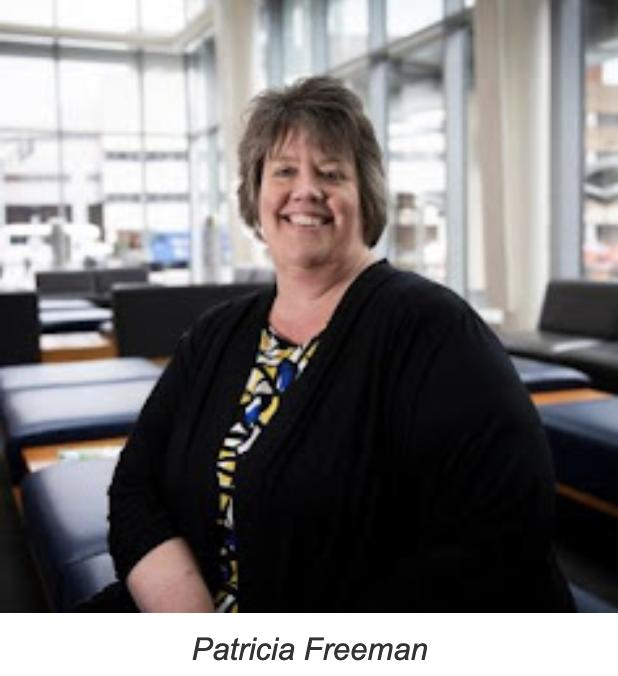Opioid commission, with new member, will hold hearing Monday, July 17 on ibogaine, exotic drug proposed for drug treatment

By Melissa Patrick
Kentucky Health News
The Kentucky Opioid Abatement Advisory Commission will hold its first public hearing Monday, July 17, about the use of an exotic psychedelic drug, ibogaine, as a treatment for opioid-use disorder.
The hearing follows the May 31 announcement at which Bryan Hubbard, the commission’s chair and executive director, asked the commission to consider using $42 million of the more than $900 million in settlement funds being paid by drug companies to invest in clinical trials of the drug to win approval for its use.
The public hearing will be held in the Administrative Office of the Courts building, 1001 Vandalay Drive, Conference Room A-125, Frankfort from 9 a.m. to 3:30 p.m. It will be live-streamed for those unable to attend.
Hubbard told the commission at its July 11 meeting that the hearing will include an expert panel of researchers and clinicians who will provide insight into ibogaine therapy as a treatment for addiction. Hubbard told Kentucky Health News that all of panelists will speak in support of the treatment.
The panelists listed in a press release are Dr. Kenneth Alper, associate professor of psychiatry and neurology at the New York University medical school; Dr. Deborah Mash, professor of neurology and molecular and cellular pharmacology and director of the Brain Endowment Bank at the University of Miami, and founder and CEO of DemeRx; Dr. Srinivas Rao, chief scientific officer at ATAI Life Sciences in Berlin; Dr. Douglas Kramer, senior vice president, pharmacovigilance and regulatory affairs, Athenex Inc.; and Dr. Nolan Williams, associate professor at Stanford University and director of the Stanford Brain Stimulation Lab.
The press release was issued by a public-relations firm that is being “retained by a private benefactor who is supportive of ” the commission’s efforts “who wishes to remain anonymous,” said an email from Brad Burge, founder of the firm.
After opening remarks from each panelist, there will be a “round robin” question-and-answer session with the commissioners that will last four hours, Hubbard said. He said this process will allow for “a very open and vigorous and enlightening conversation about whether ibogaine is something that is worth considering or pursuing or not.”
He said at least two people will talk about their recovery experience with ibogaine treatment outside the U.S., which has not approved the drug for any use. He told Kentucky Health News that the public would be allowed to ask questions for about 30 minutes at the end of the meeting.
The second public hearing on ibogaine has been rescheduled to Sept. 15 from 9 a.m. to 3:30 p.m. at the Administrative Office of the Courts, 1001 Vandalay Drive, Conference Room A 125, Frankfort.
New commissioner appointed
Freeman replaces Sharon Walsh, principal investigator of the $87 million National Institutes of Health-funded study, which is aimed at finding tools for preventing and treating opioid addiction.
Walsh told Kentucky Health News that she was leaving the appointment due to additional and ongoing work responsibilities. She wrote in an email:
“We were informed a few weeks ago by the federal government that the HEALing Communities Study (which I lead) is being extended once again by the NIH (it was originally a 4-year project and is now going to be a 6-year project). Between that, other new NIH projects, and my leadership responsibilities at the university, I needed to reduce some of my extra external activities. Of Freeman’s appointment, she said, “She is very knowledgeable and I know she will do a great job.”
At the June meeting, Walsh questioned the idea of using opioid-settlement money to do clinical trials of ibogaine and pointed out that Mash, whom she knows, is the founder and CEO of a pharmaceutical company developing ibogaine for treating addiction, which presents a “clear conflict of interest.” She also pointed out that there are already drugs available for opioid withdrawal if that is the main goal of these trials.
Hubbard told Walsh at the meeting that she could invite an expert of her choosing, but as of July 11, he told Kentucky Health News that he had not received any suggestions.
Asked if her opposition to ibogaine had anything to do with her leaving the commission, Hubbard said as far as he was concerned, it didn’t. “I don’t have any issue with any commission member who takes a principal position of disagreement,” he said.
The application portal to apply for an opioid settlement grant will close Aug. 30, 2023 for maintenance and will re-open on Jan. 1, 2024. Hubbard said because of this, any grants that are in process and those who want to complete their application need to have that done by Aug. 30. He added that more information will be forthcoming on the website.